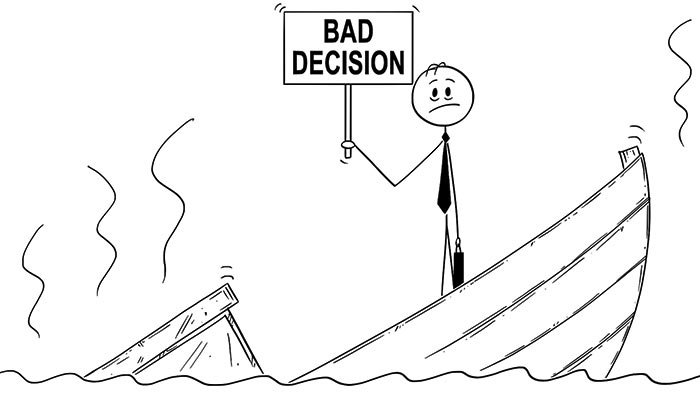
There isn’t a question of if we should do it. Now as a manager you might be thinking: this is a high value client, we need to make them happy. Everything planned for the next 4 weeks will need to be shelved, and the team moved onto new work immediately. Using this framework, how you would feel as an employee in each of these scenarios?Ī high value client has raised an urgent issue, and resolving it will dramatically change your team’s short-term work.

So what I mean here by a bad decision is a decision done in the wrong way. This ignores everything that happens before and after the decision: like who’s included, what ideas are shared, how it’s deliberated, communicated, executed, and measured. You likely hear that as an attack – you made the wrong decision as if there is only one correct path forward or strategy. When someone says “you made a bad decision” you probably feel awful. Bad decisions aren’t what you think they are That means bringing in diverse perspectives, leveraging inclusive processes, and creating collaboration equity. So a solution here is to level up your managers – help them make conscious decisions. It’s often said people don’t leave companies, they leave managers. Most leaders don’t recognize they’re making decisions, so they don’t manage their decisions effectively. “I guess I just have to shut up and do what they say.”Ĭhronic bad decision making, often disguised as collaboration, is usually fault. “Why are they always changing things on us?”


“Who was involved in making this decision? This is so dumb.” “It just feels like there’s no direction, everything changes for no reason every week.” “Why wasn’t I there? This would be so different if we were in person.” Think about how remote-first cultures are changing: how often are you getting private messages or meetings where people say things like this ? A recent Microsoft survey showed 54% of employees were considering leaving. The impact on business is obvious, but solely blaming the pandemic for high turnover is missing the forest for the trees.Ĭompany culture is is changing in the remote-first environment – meeting fatigue, poor online collaboration skills, and bad decision making is lead to high team churn. The great resignation is here, with high employee turnover hitting hard as employees reflect on what’s causing your team to churn.


 0 kommentar(er)
0 kommentar(er)
